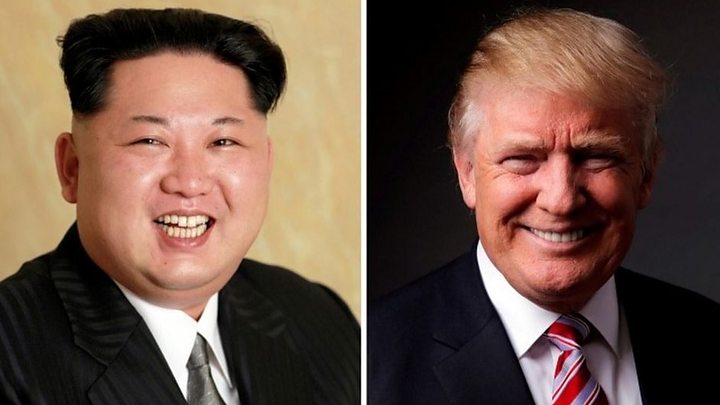
North Korea agreeing to discuss denuclearisation "is evidence that President [Donald] Trump's strategy to isolate the Kim regime is working," US Vice-President Mike Pence has said.
He said the US had made "zero concessions" and "consistently increased the pressure" on North Korean leader Kim Jong-un.
An unprecedented summit between the two leaders is due to take place by May.
It comes only months after the pair hurled insults at each other.
Mr Trump has hailed the dizzying shift in North Korea's position as "great progress" but said sanctions would remain in place.
South Korean envoys earlier briefed the US president on the meeting they had this week with Mr Kim, saying he was now "committed to denuclearisation".
South Korea's President Moon Jae-in said the news of the Kim-Trump meeting had come "like a miracle".
"If President Trump and Chairman Kim meet following an inter-Korean summit, complete denuclearisation of the Korean peninsula will be put on the right track in earnest," he said.
However, correspondents say the North has halted missile and nuclear tests during previous talks, only to resume them when it lost patience or felt it was not getting what it demanded.
- Analysis: The political gamble of the 21st Century
- Kim's concern for South Korean leader's welfare
- US-North Korea talks: What could happen now?
- The Kim-Trump talks in 400 words
In his statement, Mr Pence said the "maximum pressure campaign will continue until North Korea takes concrete, permanent, and verifiable steps to end their nuclear programme".
Mr Trump's strategy has been roundly praised by the South Koreans.
Chinese President Xi Jinping also telephoned him on Friday to welcome the development and urge all sides to show goodwill and avoid doing anything that could impede the improving situation on the Korean peninsula, reported Reuters news agency,
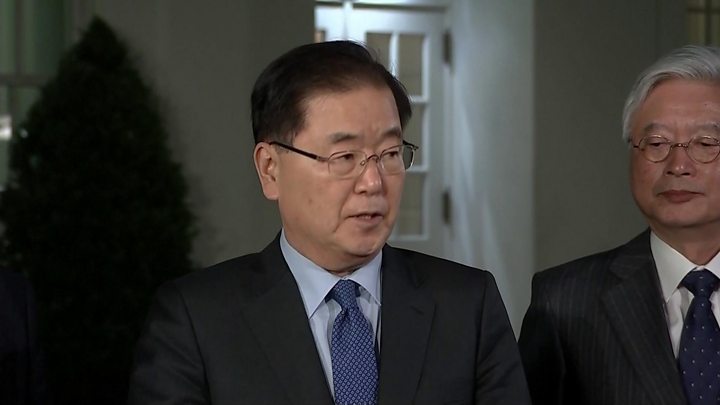
Why is the US suddenly interested in talks?
The US Secretary of State Rex Tillerson, speaking in Djibouti on an African trip, said of Kim Jong-un: "What changed was his posture in a fairly dramatic way.
"In all honesty, that came as a little bit of a surprise to us, as well that he was so forward-leaning in his conversations with the delegation from South Korea."
- The strange optics of the North Korea announcement
- The South Korean envoys behind a diplomatic breakthrough
In recent months, Mr Trump has belittled Mr Kim as the "rocket man", threatening him with "fire and fury", while Mr Kim has called Mr Trump "a mentally deranged US dotard".
The speed of events appears to have caught Mr Tillerson off-guard - on Wednesday he said the US was "a long way" from negotiations with the North.
There has been no mention of the developments as yet on North Korean state media.

Moon's huge gamble
Analysis by the BBC's Laura Bicker in Seoul
South Korean President Moon Jae-in has acknowledged there are obstacles ahead. He is managing expectations and so much can go wrong.
His approval ratings took a hit during the Winter Olympics after he integrated the women's hockey team with players from the North and met a general from Pyongyang who had been accused of masterminding deadly attacks on South Koreans, though they have since rebounded.
These talks are a huge gamble with a communist state which is hard to read.
But if, just if, he helps pull it off, it may reduce the threat of nuclear war and he could win himself a Nobel Peace Prize.
If all fails, it is back to brinkmanship.

How did we reach this point?
The South Korean envoys met Mr Kim in Pyongyang this week. It was the culmination of a rapprochement that began at the New Year and led to the Koreas marching together at the Winter Olympics.
The envoys then travelled to Washington to brief Mr Trump.
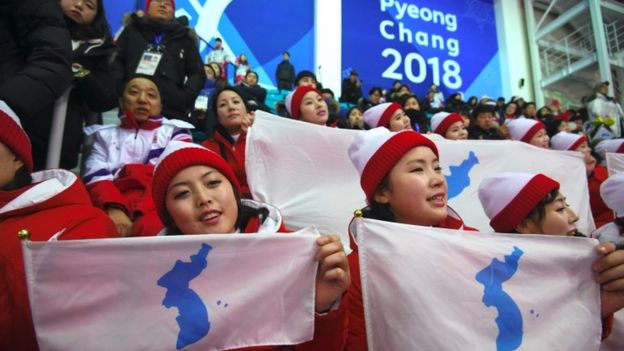 AFP
AFP
Speaking outside the White House after the meeting, South Korean National Security Adviser Chung Eui-yong said that:
- Mr Kim was prepared to sit down with the US president
- North Korea was "committed to denuclearisation"
- It would halt all nuclear and missile tests
- It understood that US-South Korean military drills "must continue"
- How to talk to the world's most secretive country
- South Korea statement on Kim-Trump meeting in full
There is no indication yet of where the Trump-Kim talks might take place, but the Korean border's demilitarised zone (DMZ) and Beijing are seen as likely options.
What could be on the agenda?
Clearly for the US, South Korea and allied nations, denuclearisation is the key issue.
North Korea has been isolated for decades because of its pursuit of nuclear weapons, in defiance of international laws.
The North has carried out six nuclear tests and has missiles that could reach the US.
However, the BBC's Laura Bicker in Seoul says it is important to note that North Korea has not yet promised to abandon its nuclear weapons completely.
The North's well-documented human rights abuses are also a key issue for the US.
So what does the North want? An easing, if not removal, of sanctions certainly.
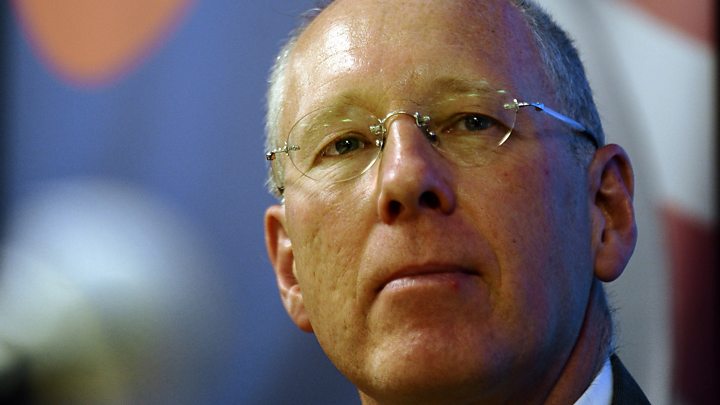
A former British ambassador to North Korea, John Everard, told us at the BBC there must be a suspicion that Mr Kim might be trying to play Mr Trump to try to "get him to say across the table things that North Korea has been asking for for a long time".
- Analysis: Did sanctions push North Korea into talks?
- Asian markets rally on US-NK talks hopes
- What missiles does North Korea have?
These could include a peace treaty to finally end the Korean War and a promise that if North Korea denuclearised then the US would finally withdraw its troops from South Korea.
The US has tens of thousands of military personnel there and the massive annual joint war games infuriate the North because it believes they are preparation for invasion.
What have the other players said?
The reaction has been positive, if cautious:
- Russian Foreign Minister Sergei Lavrov said the development was a "step in the right direction", adding: "It should not just be a meeting, it should open up a way to resuming a fully fledged diplomatic process"
- Japan's Prime Minister Shinzo Abe said he would "keep putting maximum pressure until North Korea takes concrete actions toward denuclearisation"
- The EU said it was a "positive development", while a spokesman for UK PM Theresa May said Britain would keep up the pressure on the North
Have talks like this happened in the past?
No sitting US president has ever met a North Korean leader, but there have been repeated attempts to get North Korea to denuclearise.
The last major effort - the Six Party talks - collapsed in 2008, largely because North Korea refused to allow inspectors to verify that it had shut down its nuclear programme.
A number of bids to restart the talks after that also collapsed.


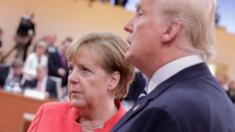
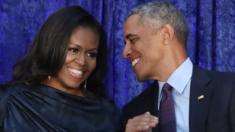
No comments:
Post a Comment